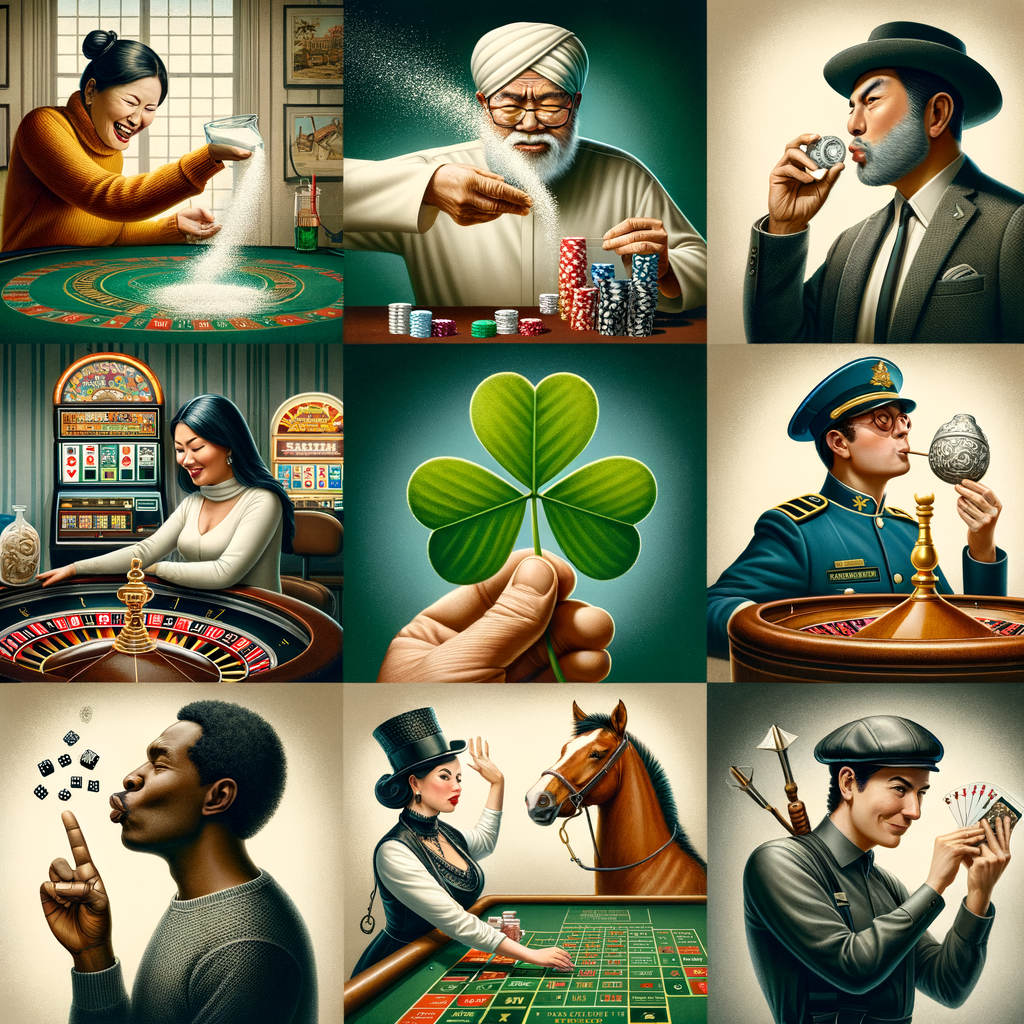Uncovering Global Gambling Superstitions and Beliefs
Gambling has long been intertwined with superstition—a phenomenon that transcends cultures and borders. These odd beliefs and rituals often arise from the human desire to control luck and fate, especially in high-stakes environments where the odds are stacked against them. From the clinking of coins to specific body gestures, gamblers have developed unique practices to attract luck or ward off misfortune. Understanding these superstitions sheds light on the psychology behind gambling behaviors worldwide.
In countries like Japan, players often avoid bringing their own fortunes to the table. Instead, they believe that visiting a shrine is essential before engaging in any gambling activity. Japanese gamblers might even purchase omamori—amulets that are thought to bring good luck. Conversely, in the Western world, blowing on dice before a roll can be seen as a way to enhance luck, particularly in games like craps. These diverse practices underline the universal human tendency to seek control in unpredictable situations, revealing the deep-rooted connections between belief systems and gambling.
Interestingly, the interpretations of luck vary significantly across cultures. For instance, in some parts of the Middle East, the number 13 is considered unlucky, while in many Asian cultures, the number 8 is revered and sought after as a symbol of prosperity. This table summarizes some of the most peculiar gambling superstitions around the globe:
| Country | Superstition | Explanation |
|---|---|---|
| Japan | Visiting a shrine before gambling | Ensures divine favor and good fortune |
| Western Countries | Blowing on dice | A ritual to enhance luck in games |
| Middle East | Avoiding the number 13 | Associated with bad luck |
| China | Favoring the number 8 | Represents wealth and abundance |
| Italy | Touching iron | Believed to ward off bad luck |
How Luck and Rituals Shape Betting Practices Worldwide
The rituals surrounding gambling are not only a reflection of personal beliefs but also serve as a social bonding mechanism among players. Gamblers often share their superstitions and practices, creating a community that thrives on collective beliefs. In places like Las Vegas, for example, the allure of luck is palpable, and casinos even cater to these beliefs by incorporating lucky symbols and designs into their decor. These practices not only enhance the atmosphere but also make players feel more connected to a shared experience.
Moreover, the psychology of superstition in gambling can also be linked to cognitive dissonance theory, where individuals cling to beliefs that help them reconcile the unpredictability of chance. Individuals may attribute wins to their rituals while overlooking losses, reinforcing their behaviors. This cycle can perpetuate a sense of agency in a game where, ultimately, chance governs outcomes. Gamblers, irrespective of their cultural background, often become so immersed in their rituals that they may find themselves incapable of betting without them.
The digital age has also influenced gambling superstitions, especially with the rise of online casinos and betting apps. While some traditional rituals may seem less applicable in a virtual setting, new superstitions have emerged. For example, players may believe that particular usernames or avatars bring them luck, or that logging in at a specific time maximizes their chances of winning. As gambling continues to evolve, so too will the beliefs and rituals that surround it, reflecting an ever-changing landscape of human psychology.
Q&A Section
Q: What are some common gambling superstitions?
A: Common superstitions include avoiding certain numbers (like 13), blowing on dice, and carrying lucky charms.
Q: Why do people engage in gambling rituals?
A: Gamblers engage in rituals to create a sense of control over luck and to enhance their emotional experience while betting.
Q: Are gambling superstitions the same across all cultures?
A: No, gambling superstitions vary significantly across cultures, with unique beliefs and practices that reflect local customs.
Q: Can superstitions affect gambling outcomes?
A: While superstitions do not influence actual game outcomes, they can affect a gambler’s mindset and emotional state, potentially impacting their decisions.
Q: How has technology influenced gambling superstitions?
A: Technology has led to the emergence of new superstitions, such as beliefs surrounding usernames and optimal times to play in online gambling environments.
In conclusion, gambling superstitions encapsulate a fascinating intersection of culture, psychology, and ritual. These bizarre yet compelling practices serve as reminders of the lengths to which humans will go to seek control over their luck, enriching the overall experience of gambling around the globe.




Comments